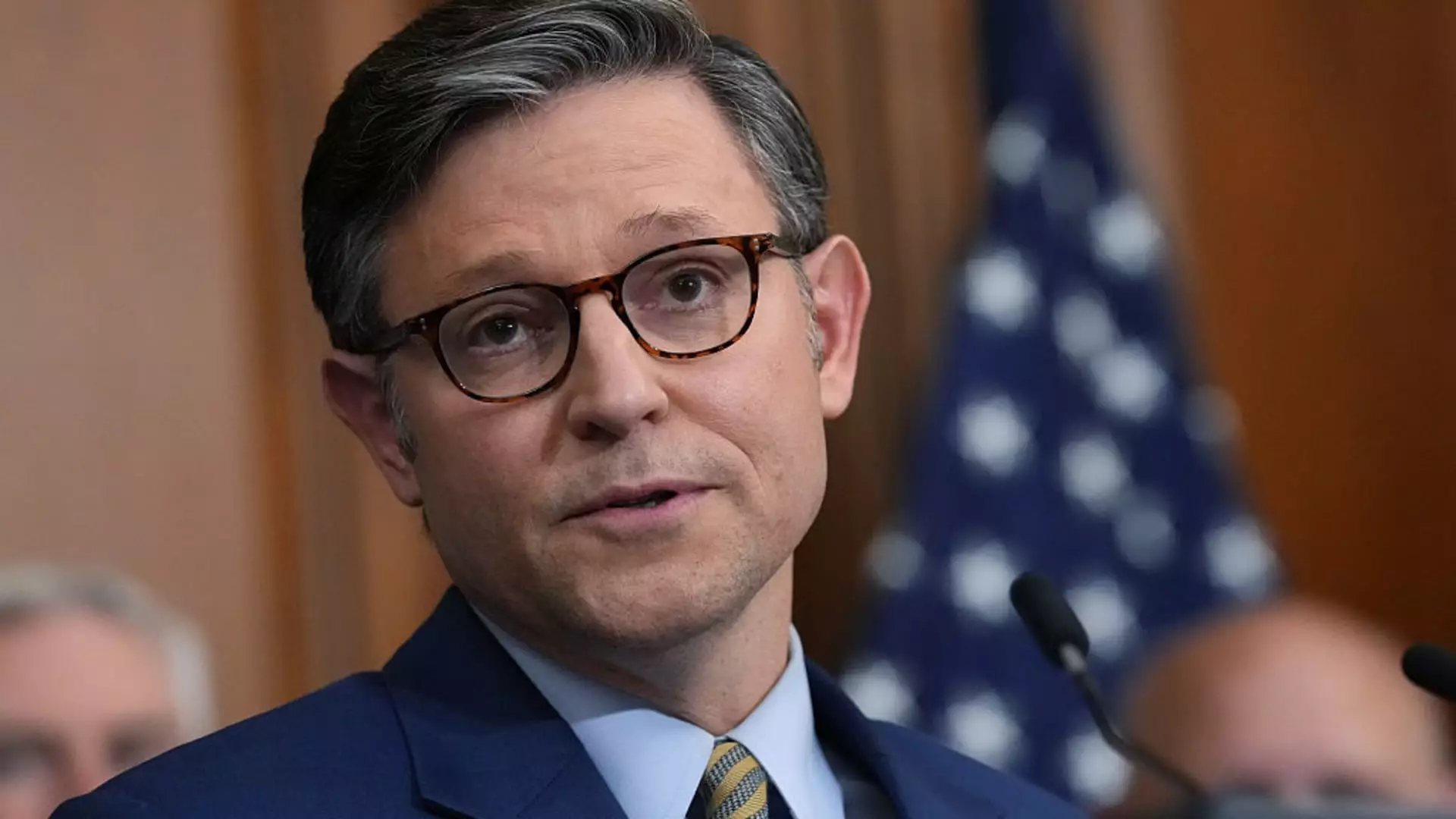In a precarious political landscape, Speaker Mike Johnson, R-La., is making waves with his staunch defense of the recent cuts to Medicaid. His assertion that “4.8 million people will not lose their Medicaid unless they choose to do so” is a dangerous oversimplification that threatens the very fabric of social safety nets. He places his faith in the notion of “common sense” work requirements, which he argues are merely enforcing the responsibilities of able-bodied individuals. However, this rhetoric masks the alarming truth: these requirements are burdensome and ill-conceived, turning access to essential healthcare into a minefield of bureaucratic red tape.
The notion that individuals must engage in work, volunteerism, or job training for 80 hours a month to maintain their healthcare coverage sounds innocuous on the surface. Johnson’s dismissal of concerns regarding the cumbersome nature of these requirements demonstrates a worrisome disconnect from the complexities of the lives of many Americans. Simply put, not everyone has the luxury of flexibility. For those already struggling to survive, such onerous demands morph into barriers rather than pathways to stability and self-sufficiency.
The Disconnect From Reality
In defending these measures, Johnson’s op-ed-like comments lack empathy for the real-world implications of his policies. He seems convinced that a 20-hour weekly commitment in exchange for Medicaid is a reasonable ask. But for single parents juggling multiple jobs, caretakers of elderly relatives, or those battling chronic health issues, this so-called “common sense” approach overlooks the multifaceted challenges those marginalized by society face. It further reinforces the tired myths of laziness that have long plagued discussions on welfare.
Moreover, allowing the government to implement increased eligibility checks and address verifications only compounds the existing complications. It is a chilling reflection of a belief system that prioritizes paperwork and bureaucratic efficiency over the lives and well-being of vulnerable populations. Johnson’s framing of these measures as “minor enforcement” reveals a troubling normalization of policies that can lead to the loss of essential care.
A Political Minefield
Republicans have adeptly divided their own ranks over the issue, which suggests an internal struggle between the party’s hardliners and those genuinely concerned for the socio-economic consequences of these cuts. Lawmakers like Sen. Josh Hawley have boldly stated what many others hesitate to say: the approach to slashing social programs is not only morally bankrupt but politically suicidal. This dissent underlines a critical reality: Republicans must grapple with the fact that their voter base is composed of real people who face the real struggles of everyday life.
To that end, Johnson’s unrelenting stance in town halls—met with boos and backlash—depicts a growing disconnect between political rhetoric and public sentiment. Facing a crowd that includes constituents relying on assistance can serve as a stark reminder that these policies bear real consequences, shaping lives far beyond the confines of Washington, D.C.
Exploitation Under the Guise of Reform
Critics like Sen. Raphael Warnock from Georgia have astutely pointed out the inherent flaws in the proposed legislation. The imposition of work reporting requirements, rather than incentivizing employment, functions as a mechanism for kicking people off health insurance rolls. By redirecting focus towards compliance issues rather than creating opportunities for genuine employment and vocational training, the legislation compounds the structural barriers faced by low-income individuals.
In a climate where access to nutrition and healthcare should be non-negotiable, these proposed cuts represent a cruel betrayal of the social contract. They threaten to dismantle the safety nets designed to support the most vulnerable among us—putting political expediency above human dignity.
The trajectory we are witnessing is not just a policy debate; it is a stark reminder of the critical importance of advocacy for those often overlooked in governmental discourse. As discussions swirl around this and similar proposals, a demand for systemic change that prioritizes compassion and practicality over agenda-driven legislation becomes more urgent than ever. The fight for accessible and equitable healthcare, coupled with a safety net that genuinely assists those in need, remains paramount in the landscape of American politics.


Leave a Reply